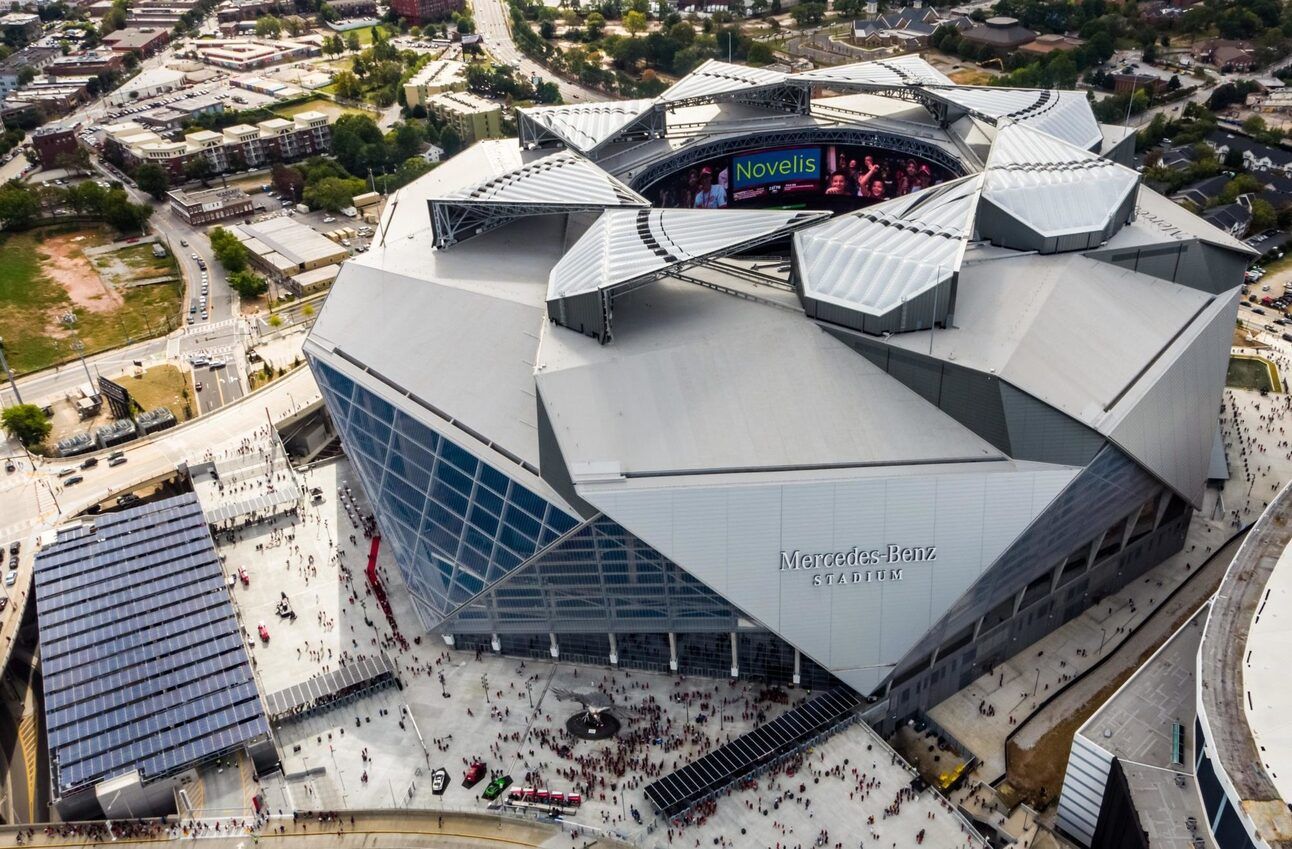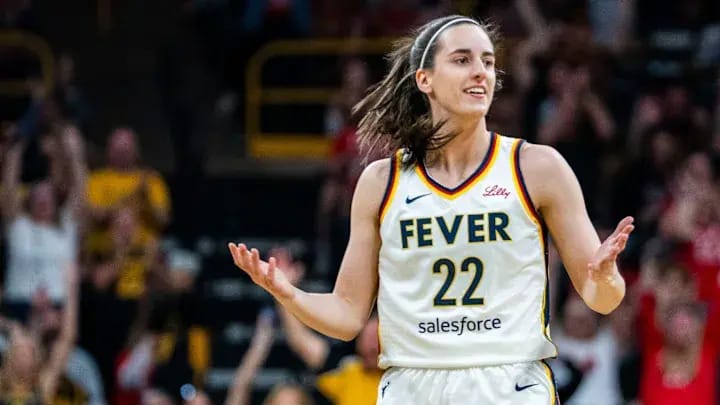Welcome to Beyond The Sideline, the community resource for the next generation of sports business leaders.
The Big Idea
3 Grades for the Club World Cup

Was the Club World Cup a success or a failure? It depends on what FIFA and its stakeholders really wanted out of it.
Much of the media chatter around the Club World Cup has been negative. Yet as with any undertaking, its outcome can’t be assessed without understanding the objectives behind it. The grades for the Club World Cup vary greatly depending on what perspective you take on its strategic purpose.
As a Showcase for US Audiences
Let’s start with the bad news we’ve already heard. On average, stadiums through the group stage were at 53% of capacity. Chelsea manager Enzo Maresca called the numerous weather delays “a joke,” after Jurgen Klopp called it “the worst idea ever implemented in football.” For a sport still coaxing America to view it as one of the majors, it did not help the cause. Political rallies are often held at purposely undersized venues to overstate a politician’s support by showing an overflowing crowd. FIFA higher-ups did the opposite when they overruled feet-on-the-ground pushing for smaller arenas and instead insisted on booking the largest stadiums possible. While hardcore fans got to see teams they rarely see live, casual fans saw a sport yet to be taken seriously. The only thing saving a failing grade here is the hope that the Knockout stage can still bring some positive sporting drama and fan attention to the tournament.
Grade: D-
As A Trial Run for the World Cup
One way to think about the Club World Cup is as a rehearsal for the 2026 World Cup. From that perspective, many of the complaints about the tournament can be viewed as learnings for the “real show.” There were a number of pre-existing reasons to think that attendance would be low. For one, the Club World Cup is considered a secondary tournament by ardent footballers. For another, the expanded field meant there were a lot of teams that just don’t have much of a following in the US. Finally, many of the game times were optimized for media viewing in time zones in other parts of the world rather than for maximizing attendance on site. Mistakes like scheduling games in storm-prone summer Florida afternoons are better made now than next year. The wide variation in attendance also provides some useful input for next year’s ticket pricing strategy. Assuming they’re willing to make adjustments, FIFA has gotten useful feedback for optimizing next year.
Grade: C+
As Incremental Revenue for FIFA
Another lens to view the CWC is as a standalone event in its own right. Forget comparisons to the World Cup, the Champions League, or other iconic events. While the attendance numbers look poor compared to the prestigious global soccer tournaments, the Club World Cup is still outperforming the MLS. Average attendance for the group stage was 35,190. Only one MLS team, Atlanta United, regularly draws more fans than that. Then there was the media rights deal with DAZN reported by multiple sources at $1 billion. As is often the case with FIFA, there is the suspicious fact that Saudi Arabia made a major investment in DAZN around the same time it got the nod from FIFA to host the World Cup in 2034. Still, there are only a handful of events across any sport that can command those numbers. Even after taking a few points off for the conniving side deals, this American-based Club World Cup can be viewed as a success.
Grade: B+
Legal
The House Always Wins: Beasley Probe Exposes NBA's Precarious Gamble

The National Basketball Association is facing a disquieting reality check, one that strikes at the very heart of its competitive integrity.
The recent news that Detroit Pistons guard Malik Beasley is the subject of a federal gambling probe has sent a tremor through the league, not because a player is being investigated, but because of who that player is. This isn't a fringe player clinging to a roster spot; this is a Sixth Man of the Year candidate, a sharpshooter coming off a career year who was on the verge of signing a lucrative $42 million contract. The allegations that a player of his caliber may have been involved in fixing games or personal stat lines elevate the league's burgeoning gambling problem from a background concern to a five-alarm fire.
Federal authorities are investigating Beasley for allegations related to gambling on NBA games and prop bets, with a focus on his time with the Milwaukee Bucks during the 2023-24 season, as first reported by ESPN. The probe was reportedly triggered after at least one U.S. sportsbook detected unusually heavy betting on Beasley's statistical performance. One game, in particular, a January 31, 2024 matchup against the Portland Trail Blazers, saw a dramatic shift in odds on the under for Beasley's rebound prop. While the bet ultimately lost (Beasley secured six rebounds, well over the 2.5 line), the sheer volume of money wagered was enough to raise red flags.
While Beasley's attorney correctly states that an investigation is not a charge and the presumption of innocence remains, the context surrounding the probe paints a deeply troubling picture. As the investigation came to light, so too did reports of Beasley's significant financial difficulties. Despite earning nearly $60 million in his career, Beasley is facing a lawsuit from a former agency for an unpaid $650,000 advance and is reportedly entangled in other debts with landlords, a celebrity barber, and firms specializing in high-interest loans to athletes, according to reports from NBC Sports and ESPN.
This nexus of high-stakes gambling and personal financial distress is the league's worst nightmare. Beasley is not an anomaly. The financial pressures on professional athletes, who often have short careers and support large entourages, are immense. The story of a wealthy athlete going broke is a tale as old as professional sports itself. What's new, and what makes this situation so perilous, is the ubiquitous and heavily promoted presence of legalized sports betting. The league, which has eagerly embraced sports betting as a massive revenue stream, has inadvertently created a minefield for its own players. When a player is in desperate need of quick cash, the temptation to influence a prop bet—a single statistic in a single game—becomes dangerously alluring.
As we’ve covered on BTS before, the NBA has already dealt with the case of Jontay Porter, who received a lifetime ban for disclosing confidential information to bettors and limiting his own participation in games to ensure certain prop bets hit. Porter, however, was a two-way player on the fringes of the league. The Beasley investigation is different. It suggests this vulnerability may not be confined to the end of the bench.
There’s an idea in risk management that if you find one cockroach, you don't have a single cockroach problem; you have an infestation with dozens of unseen and unwanted bugs crawling around. The same logic applies here. The Jontay Porter scandal could have been and, for the most part, was dismissed as an isolated incident, a regrettable but contained slip-up. But now, with a second player under federal investigation for similar alleged offenses, the NBA must confront the reality that it doesn't have a player problem; it has a gambling problem.
The league and its teams are now in a precarious position. Beasley's contract talks with the Pistons are on hold, and his future in the league is uncertain. But the impact extends far beyond one player. Every unusual stat line, every early exit from a game due to a minor "injury," will now be viewed through a lens of suspicion by a public that is becoming increasingly aware of the potential for corruption.
As the investigation unfolds, the NBA must do more than just cooperate with federal authorities. It needs to undertake a serious and transparent review of its relationship with the gambling industry. The integrity of the game is the bedrock upon which the entire multi-billion-dollar enterprise is built. If the fans, the very lifeblood of the league, begin to question whether what they are watching is a legitimate contest or a scripted outcome for the benefit of bettors, the damage could be irreparable.
The house, in this case the gambling industry, may always win, but the NBA cannot afford to lose.
By The Numbers
Numbers That Jumped Off the Page
15%- Nike stock jumped 15% for its largest single-day performance since 2021. This came despite a revenue decline of 10% and a drop in net income of 86%, not to mention the looming impact of tariffs. It seems investors have restored faith in the new leadership and direction, something we touched on a few weeks ago.
$250 Million- The price of doing business in the WNBA just went up. Three new expansion teams in Philadelphia, Detroit, and Cleveland all came with an expansion fee of $250 million, up from $50 million just last year.
???- The College Sports Commission, the body now in charge of overseeing and investigating the earnings of college athletes, has ironically refused to share the salary of its CEO, Bryan Seeley. Created by the 5 power conferences to ensure transparency in payment following the landmark House v. NCAA ruling, the irony of the situation is so high it might affect the initial trust people have with the company.
Pulse Check
Last week, we asked BTS readers, “Which league would benefit the most from their own Hard Knocks-style show?” Here’s what they thought.

Which team would you be most shocked to see leave their historic stadium?
The Highlight Reel
Catch up on our most-read articles from previous weeks
Do you have a topic you want us to cover, a survey question you'd like us to ask, or any news you'd like to share? Let us know at [email protected].
Modernize your marketing with AdQuick
AdQuick unlocks the benefits of Out Of Home (OOH) advertising in a way no one else has. Approaching the problem with eyes to performance, created for marketers with the engineering excellence you’ve come to expect for the internet.
Marketers agree OOH is one of the best ways for building brand awareness, reaching new customers, and reinforcing your brand message. It’s just been difficult to scale. But with AdQuick, you can easily plan, deploy and measure campaigns just as easily as digital ads, making them a no-brainer to add to your team’s toolbox.
Forward to other future sports business leaders





